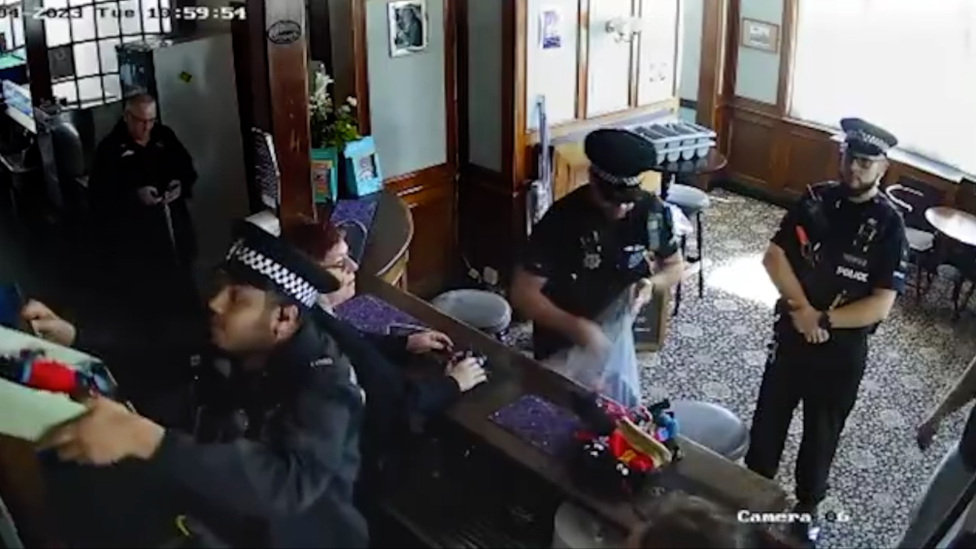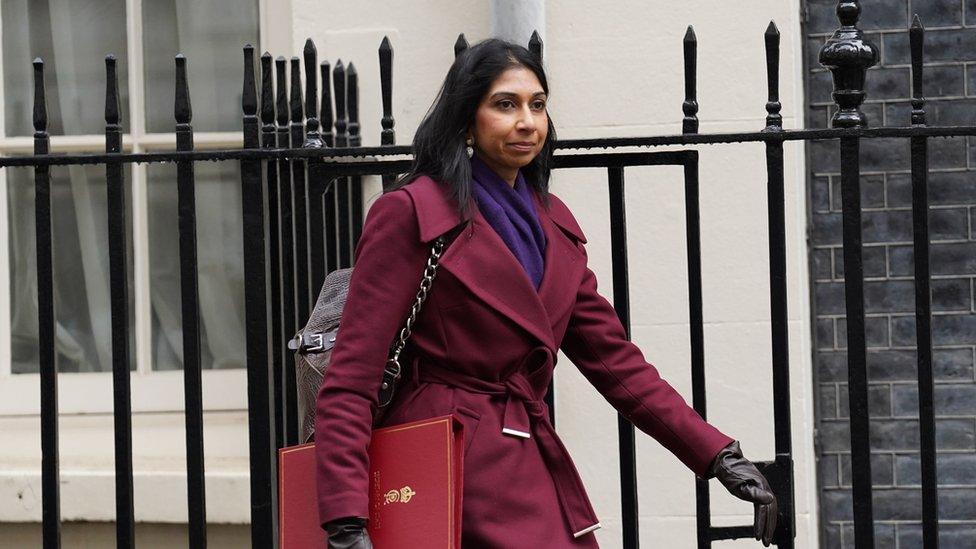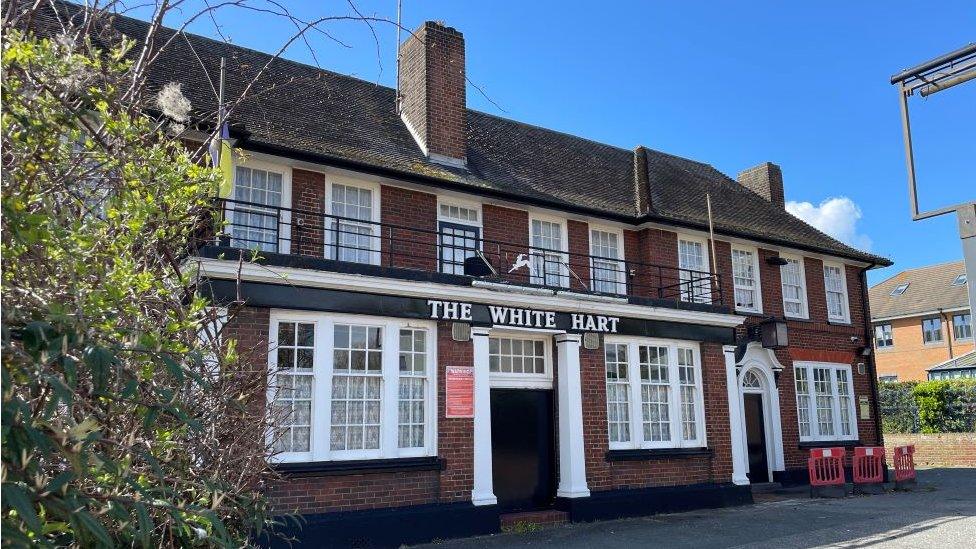What led to a police probe over golly dolls in a pub in Essex?
- Published

CCTV images from inside the pub showed officers seizing several dolls
A hate crime investigation is under way after golly dolls were seized from a pub in Essex. What led to the police involvement and why has it become such a big political talking point?

How did the investigation start?
Essex Police said a member of the public reported being racially distressed on 24 February after attending the White Hart Inn, in Grays, Essex.
Five officers attended the pub, where they seized several of the racially offensive dolls on 4 April.
Police said no-one had been arrested or charged in connection with the investigation, and the landlord would be questioned when he returned from abroad next month.
Officers were in discussion with the Crown Prosecution Service about the case before the items were taken last week, the force added.
Owner Benice Ryley said she has displayed the collection of about 30 dolls, donated by her late aunt and customers, in the pub for nearly 10 years.

Was Suella Braverman involved?

Essex Police said it was "categorically not true" that Suella Braverman had contacted the force
Following the seizure, reports emerged suggesting the home secretary had reprimanded the force.
A source close to the home secretary said her unhappiness at the incident had been passed on to the force, the Mail Online first reported.
It quoted a Home Office source as saying police forces "should not be getting involved in this kind of nonsense" and instead focus on "catching criminals".
Essex Police said it was "categorically not true" that Ms Braverman had contacted the force about the probe but did not rule out having been contacted by the Home Office.
In a statement, the force said: "In addition, as is the case in all investigations across every police force, we maintain operational independence from the Home Office, which ensures that every investigation is carried out without fear or favour."
The Home Office has been approached by the BBC for comment.

Why are the dolls offensive?
The dolls are based on 18th Century minstrels and are regarded as caricatures.
They first appeared on jars of Robertson's Jam in 1910, external and became one of the most recognisable brands in the UK.
It spawned a range of toys and collectibles. In the 1980s, the name became Golly amid accusations that the character perpetuated stereotypes. It was finally dropped in 2001.
The doll is a fictional character created by Florence Kate Upton that appeared in children's books in the late 19th Century, usually depicted as a type of rag doll.
It has become controversial for its perceived racist connotations.
Guidance from media regulator Ofcom categorised it as a highly offensive term.
Mrs Ryley, who runs the pub with her husband, said she could not "see any harm" in displaying them and was "angry" they had been taken away.
She also said she did not understand how people could be offended by the dolls.

What happens next?

The landlord of a pub in Essex is due to be questioned by police when he returns from abroad over allegations of a hate crime
Essex Police said the pub's landlord would be questioned when he returned from abroad next month, as part of the ongoing investigation.
The offences being considered fall under racially aggravated public order offences, the force said.
Following an investigation the force would need to send any possible charges to the Crown Prosecution Service for a final charging decision to be made.

Find BBC News: East of England on Facebook, external, Instagram, external and Twitter, external. If you have a story suggestion email eastofenglandnews@bbc.co.uk